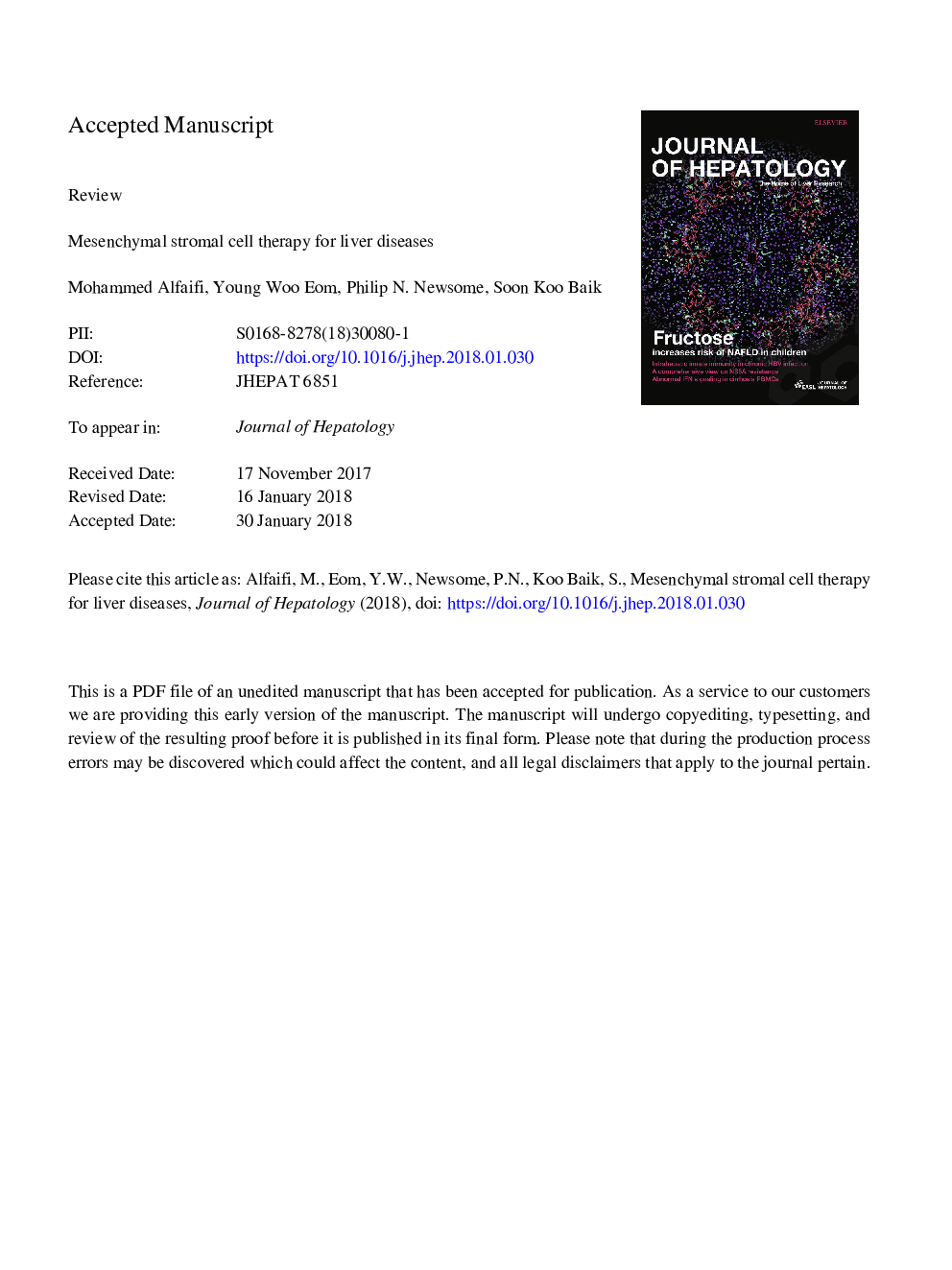| Article ID | Journal | Published Year | Pages | File Type |
|---|---|---|---|---|
| 8728986 | Journal of Hepatology | 2018 | 61 Pages |
Abstract
The therapeutic potential of mesenchymal stromal cells (MSCs) in the treatment of liver fibrosis is predominantly based on their immunosuppressive properties, and their ability to secrete various trophic factors. This potential has been investigated in clinical and preclinical studies. Although the therapeutic mechanisms of MSC transplantation are still not fully characterised, accumulating evidence has revealed that various trophic factors secreted by MSCs play key therapeutic roles in regeneration by alleviating inflammation, apoptosis, and fibrosis as well as stimulating angiogenesis and tissue regeneration in damaged liver. In this review, we summarise the safety, efficacy, potential transplantation routes and therapeutic effects of MSCs in patients with liver fibrosis. We also discuss some of the key strategies to enhance the functionality of MSCs, which include sorting and/or priming with factors such as cytokines, as well as genetic engineering.
Related Topics
Health Sciences
Medicine and Dentistry
Gastroenterology
Authors
Mohammed Alfaifi, Young Woo Eom, Philip N. Newsome, Soon Koo Baik,
